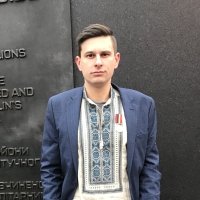
A blog of the Kennan Institute
BY MARK TEMNYCKY
Georgia and Ukraine have actively worked to join the North Atlantic Treaty Organization since the 2008 Bucharest Summit. Over the past thirteen years, these countries have participated in various NATO exercises and implemented crucial defense reforms, and were promoted to the status of NATO Enhanced Opportunity Partners. Georgia and Ukraine also deployed thousands of soldiers throughout the course of NATO’s involvement in Afghanistan to assist the Alliance with its mission.
Despite their efforts, both countries have yet to receive a NATO membership action plan. Critics argue that Georgia and Ukraine need to “clean up corruption” before being considered for NATO membership. They also claim that these countries have a way to go before they meet the NATO standards of “encourage[ing] and support[ing] democratic reforms,” as stated in the Study on NATO Enlargement.
In addition, some NATO members are concerned that potential Georgian and Ukrainian membership would escalate tensions with Russia. Recently, the Russian Federation demanded that NATO rescind its promise of possible membership to Georgia and Ukraine. The Eastern European state argued that NATO enlargement would threaten its security.
To date, NATO has never invaded a non-NATO member. In contrast, Russia launched a military incursion and illegally annexed territory from Georgia and Ukraine in 2008 and 2014.
The arguments against NATO enlargement have become old. While Georgia and Ukraine continue their fight against corruption, NATO members such as Turkey, Poland, and Hungary have been backsliding as democratic states. Moreover, Russia previously expressed outrage when countries such as Montenegro and North Macedonia were considered for NATO membership. After these countries joined the Alliance, however, nothing occurred. NATO did not intervene in the Balkans, and Russia did not militarily invade the region.
Nonetheless, critics continue to push the agenda that Georgia and Ukraine must eliminate graft in their countries. As these states continue to address this problem, the recent Democracy Summit may help them finally achieve their Western aspirations.
Earlier this month, the United States held a virtual summit to “set forth an affirmative agenda for democratic renewal and to tackle the greatest threats faced by democracies today through collective action.” Over the two-day event, representatives and leaders of various governments, civil society, and the private sector participated in numerous sessions to address the current challenges that democracy faces around the world. Over one hundred countries attended this summit, including officials from Georgia and Ukraine.
The panel topics at the summit ranged from how countries can defend their democracies against authoritarianism to “addressing and fighting corruption” and respecting human rights. The U.S. government also announced that world leaders would be responsible for taking away important points from the summit and implementing them in their respective countries, launching a “year of action.” (A second Democracy Summit will be held in 2022.)
Needed Reforms
Georgia’s and Ukraine’s attendance and participation in the summit demonstrated that they are serious about their graft issues. With that in mind, there are two crucial areas that Georgia and Ukraine need to address in their respective societies as they fight corruption.
First, Georgia and Ukraine must reform elements of their governments by strengthening institutions and promoting transparency. An open government should lead to greater accountability, as officials would be held responsible for their actions. If rules or laws were broken, an improved criminal justice and judicial system would then hold the violators liable for their actions. This would help eliminate graft.
Second, these two countries must promote freedom of the press. According to Transparency International, “access to information increases the responsiveness of government bodies.” A free press also increases public participation, such as voting or meeting with elected representatives. An oppressed media situation, however, prevents or prohibits public participation in government, which can then lead to the rise of authoritarian states. In this regard, Georgia and Ukraine recently received low scores on the 2021 World Press Freedom Index. If these two countries were to improve their relationship with the press, and if they were to increase the availability of free and independent information, such measures would help Georgia and Ukraine in their fight against corruption.
Overall, Georgia and Ukraine have demonstrated that they are committed to joining the West. They have continuously participated in various NATO exercises, have implemented crucial defense reform, and have made sacrifices for the Alliance.
The talking points received during the Democracy Summit may be the final piece needed for these countries in pursuing their Western aspirations. Georgia and Ukraine are already familiar with their graft problems, but if they could successfully combat the challenges facing democracy in the modern age and were able to implement meaningful anticorruption reforms, then perhaps corruption in these countries might finally end. This positive outcome should see them achieve their goal of joining NATO. Therefore, it is time for Georgia and Ukraine to act. Their future depends on it.
The opinions expressed in this article are those solely of the authors and do not reflect the views of the Kennan Institute.
Author


Kennan Institute
After more than 50 years as a vital part of the Wilson Center legacy, the Kennan Institute has become an independent think tank. You can find the current website for the Kennan Institute at kennaninstitute.org. Please look for future announcements about partnership activities between the Wilson Center and the Kennan Institute at Wilson Center Press Room. The Wilson Center is proud of its historic connection to the Kennan Institute and looks forward to supporting its activities as an independent center of knowledge. The Kennan Institute is committed to improving American understanding of Russia, Ukraine, Central Asia, the South Caucasus, and the surrounding region through research and exchange. Read more

Explore More in Focus Ukraine
Browse Focus Ukraine
Talking to the Dead to Heal the Living

Ukrainian Issue in Polish Elections


